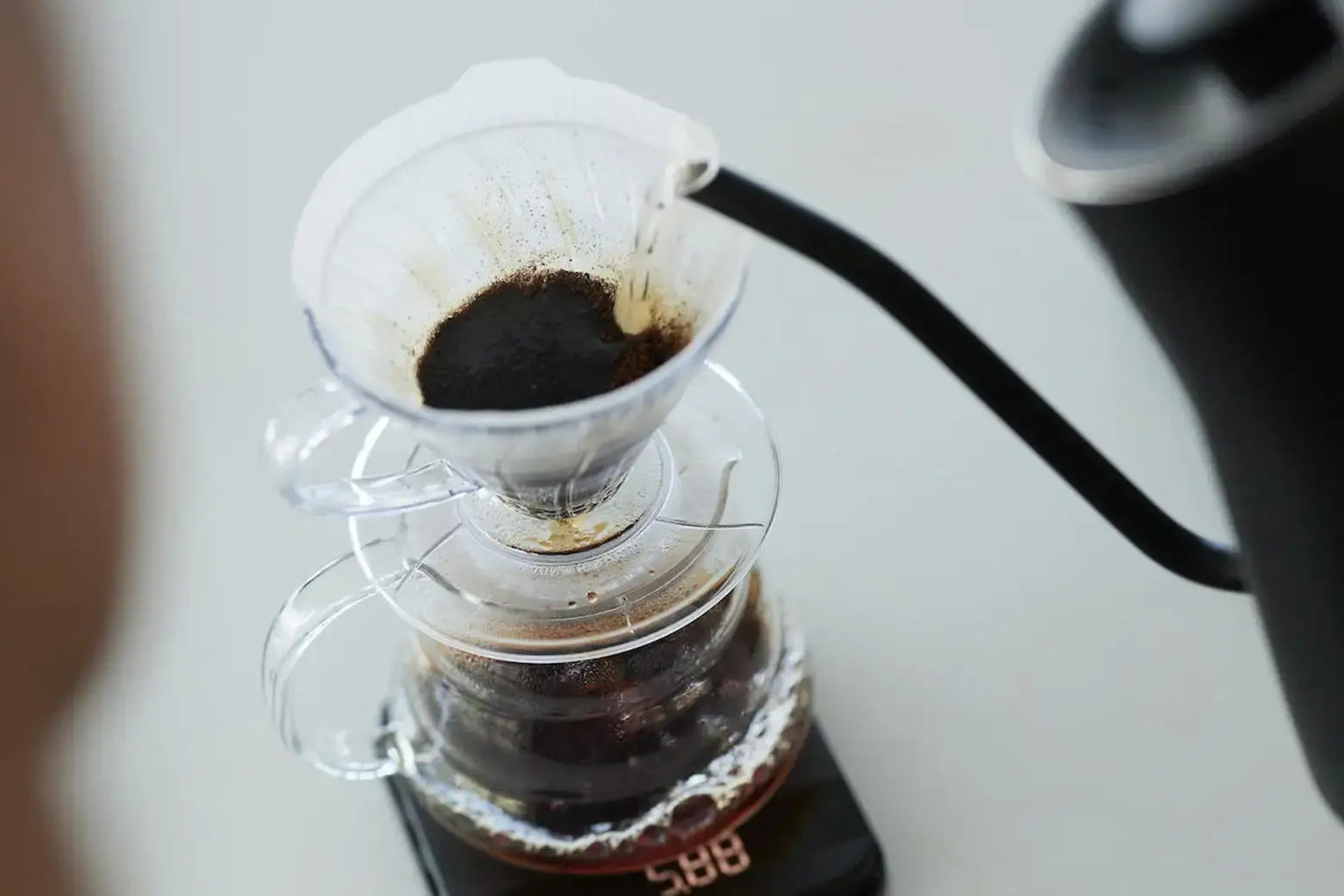
Salon loves their hyperbolic, click-bait headlines. This rage-bait shit is exhausting.

It is Slate, and unfortunately click-bait is practically required for news sites nowadays. The article is pretty good though. It talks about the very real situation that global warming is going to change how and where coffee can be grown in the nearish future.

These never ending crisis headlines are mentally draining. It’s not good for our mental health and doesn’t help anyone.

The never ending crises themselves are mentally draining.

For sure, but in this capitalist hellscape, in order to stay up and running, they need clicks, and click-bait works. The article is less doom and more harsh reality with alternatives

If they can make caffeinated chickpeas, I’ll be having a Hummus breakfast more often.
If they are suggesting a decaf alternative, they should go back to figure out why coffee.

Hummus is good for breakfast regardless…
But I just imagined coffee flavored hummus and the flavor profile made me a bit nauseous.

What if you had it with uh, like a sweet cinnamon roll, or coffee cake chips/donut chips? (As opposed to pita bread or pita chips). Maybe the right fruit?
Still sounds like a tough sell.

I mean… I dunno, I could be being closed minded, but hummus to me is zesty and savory… I have a hard time switching it to a sweet…
Here’s a thought…
Have you had sweet potato casserole where the sweet potatoes are pureed and it has candied nuts and almost a brown sugar crust? Maybe something like that…but then it wouldn’t really be hummus lol

Fair, but if they’re calling this chickpea soup coffee, I can call my sweet chickpea dip hummus.
Just like I can call avocado ice cream frozen guacamole.

Lmao I like the way you think, neighbor.

In reality it would just be chickpeas and tahini, with the garlic, lemon juice and salt omitted.
Then one could add honey to make it sweet, and maybe cinnamon, vanilla or nutmeg.
End result would be a bit like a soft, spreadable halva.

That makes sense…
Not to detract from what you’re saying, but changing subjects slightly… have you ever had honey garlic? It is an absolutely wonderful flavor profile and I’m not certain we should discount it from our “sweet hummus” thought experiment lol

I haven’t, though garlic is rather sweet anyhow, so can imagine how it might be.

Check out how to make fermented garlic honey, you won’t regret it.

After coffee I’m just going to jump straight to the caffeine inhaler if we have to be cyberpunk about it.

Honestly, at this point, I’d mainline it just to get the headaches to go away.

I find it interesting that they glossed over the simplest solution, which would be switch to buying sustainable, shade-grown coffee thus forcing coffee plantations switch to it from market pressure. But I realize it’s not the main topic of the article and that has its own issues - how to make sure it really is sustainably shade-grown, for one.
But also, maybe this is my cynicism showing, did anyone else think these sustainable coffee-esque options wouldn’t stay sustainable if they became popular? Especially with something like annual crops, once other companies see there’s money to be made they’ll jump on the trend and now land (and forests) is being cleared for these crops.

I can definitely not drink coffee made from chickpeas.
Ok, this is the hedgemeister being really nutty here, but this makes me think of Planet of the Apes (the original, not the remakes), in which there’s some sort of plague that kills off everyone’s dogs and cats, but doesn’t affect apes, who are then taken as pets instead. For some reason this causes them to evolve and take the place of humans as the dominant species. The law of unintended consequences! So along the same lines, if coffee beans go extinct, what if a synthetic alternative is created which accidentally makes humans telepathic, or better yet, removes their need for sleep? If there’s a sci-fi story in there somewhere, please feel free to take it and run with it. As for me, I think it’s time for a lie down . . .

I think you better lay off the “coffee alternatives” if you take my meaning ;)

COVID fucked up my taste for coffee completely. I fear it will never return. 😭

Not looking forward to it since I imagine these will be reminiscent of coffee rather than indistinguishable. But then if coffee is going to be that expensive, substitutes don’t need to be as good as coffee, just more appealing than tea.

But that’s impossible! Anything more appealing than tea is, by definition, going to be even better then coffee! 😛

Oh for sure, if it’s a choice between coffee substitute and real tea I’m taking tea every time. There are probably a lot of people that won’t though.

I tried to substitute tea for coffee a while back because the coffee I was drinking was giving me really bad anxiety in the mornings, but the higher caffeine teas were honestly just as bad or worse, and the tannin content would have me all jittery. I think I’m particularly sensitive to tannins, though. I couldn’t really ever find a tea that was a good balance between enough caffeine and low tannin content, while switching from a blonde roast to dark roast pretty much solved my issues with coffee…

Tldr climate apocalypse for the coffee plant might shift the market towards alternative plants. While technically true that coffee plantations will struggle in the coming years, this just means higher prices and worse average quality off the shelf.
A bit of nothing news, imho.
Coffee alternatives like rooibos are already here and the market is very resistant. Cheap coffee drinkers are irrationally attached to the bad taste they feel nostalgic for. Fancy coffee drinkers will absorb the higher costs without looking for alternatives. It’s only the tea-adventurous coffee drinkers that care about these innovations, usually due to caffeine consumption restrictions which is also a disputed market because decaf coffee quality is improving.

This doesn’t change anything else you said, but just so folks know, rooibos doesn’t have caffeine, so isn’t really a coffee alternative. Yerba Mate is going to be a better 1:1. Both are earthy and delicious and do recommend either

And at least I’m North America there’s another Maté relative, Yaupon. Both are holly species.

Oh cool. I’ll have to see if that is around here

My main example is rooibos because at least it can make espresso-like strong brews, and is sold at some coffee shops here and there. But I personally prefer Mate too, though for cold drinks :-) And if I’m just in for some caffeine, black tea is the easiest to source (around here). Matcha latte is also growing in popularity! As well as London Fog.
I love all of these, but I’m one of those tea-adventurous coffee drinkers who care about the taste more than the caffeine.

Oh for sure, they are all delicious. Just making sure that someone isn’t confused if they are looking for caffeine.

Mate is excellent, and tastes good too.

Hey, as someone who only ever drinks decaf, I’m all for something that tastes like coffee but has zero caffeine!

Oh, it is delicious for sure. It doesn’t taste like coffee, but if you like coffee you’ll probably like rooibos. I also like spiced rooibos occasionally.

It’s certainly interesting that people are exploring other options for creating hot dark beverages that taste at least somewhat similar to coffee, but it’s also entirely possible that synthesized caffeine makes its way into other beverages entirely. Obviously there’s tea as a substitute, but there are also lots of soft drinks and energy drinks with caffeine.
So long as caffeine remains cheap, increasing price of coffee will likely be met with caffeinated substitutes that have nothing to do with the coffee plant.

During periods of short supply and/or increased coffee has been often been replaced or augmented by various other ingredients. For example:
… during the American Civil War, Louisianans looked to adding chicory root to their coffee when Union naval blockades cut off the port of New Orleans. With shipments coming to a halt, desperate New Orleanians looking for their coffee fix began mixing things with coffee to stretch out the supply. Acorns or beets (cafe de betterave) also did the trick. Though chicory alone is devoid of the alkaloid that gives you a caffeine buzz, the grounds taste similar and can be sold at a lower rate. – source

coffee made from chickpeas
My son is allergic to most legumes, so I hope this doesn’t become a thing.

I live in New Zealand, a place with a climate not too dissimilar to the UK though I’m told we see the sun more often.
A few years back we had our first commercial coffee growing operation set up.
You can buy it here.
That’s about USD$33 for 180g (coffee is a drug so I assume sold in grams in the US?), so it’s nothing short of “pretty fucking expensive”, but still interesting (horrifying?) that a commercial coffee operation can work here.

You’d think that, but it is not. I buy 12oz bags of coffee. Alcohol is also sold in both fl oz and ml, so a bottle of beer is 12oz, and a bottle of booze is 750ml.

And caffeine in the coffee would be listed in milligrams, but the alcohol in beer and spirits would be measured in percent and proof.

Hmm ok, well apparently 12oz is 340g, we’d never see coffee sold in that weight. Normally 200g (7oz), 500g (17.6oz, 1.1lb), or 1kg (35oz, 2.2lb). The one linked is a bit smaller than standard at 180g (6.3oz).

Yeah, that is pretty small and very expensive. Around Seattle I pay $15-$20 for a 12oz (340g) bag of specialty coffee

A more typical price here would be say $15NZD - $20NZD for a 250g bag (and slightly cheaper per g for larger bags).
$20NZD is about $12USD, and 250g about 7oz, so scaling up that makes it about $20USD for 12oz (including tax), so same ballpark! Honestly, I’m surprised. Normally stuff is more expensive here

That is surprising! I bet the local coffee farm is just small, so there is just not a lot of output yet. That will always drive the price up.

Oh yes they are tiny, and have to cover costs from a developed country price point so no cheap labour. Plus they can only grow coffee part of the year (seasonal). Plus the unique aspect of it and limited availability would mean higher prices.


